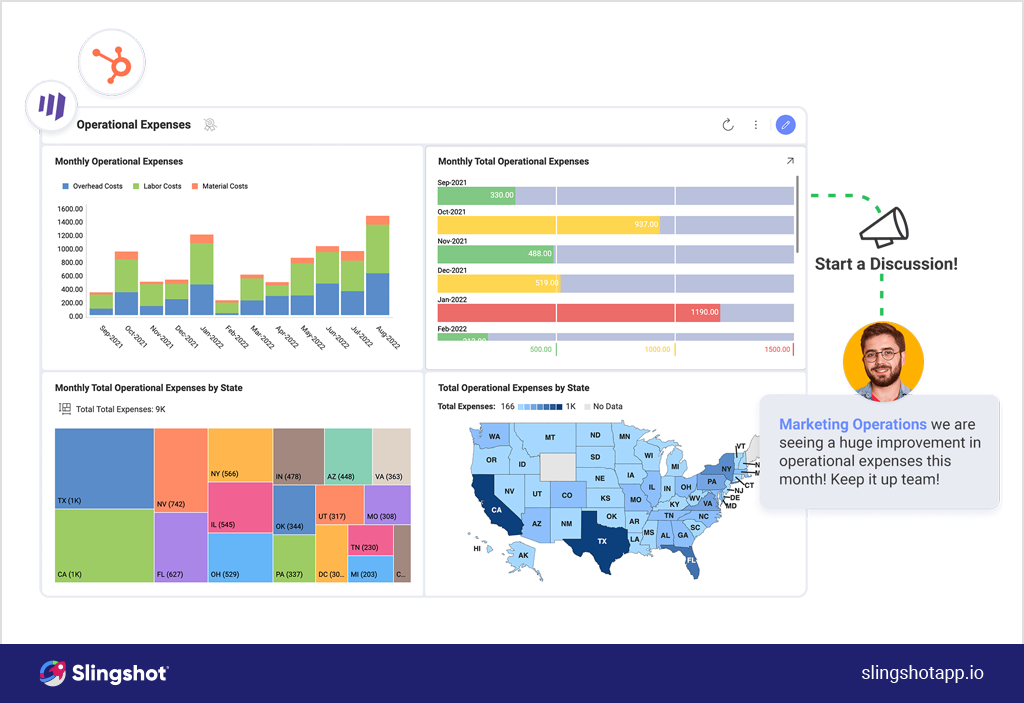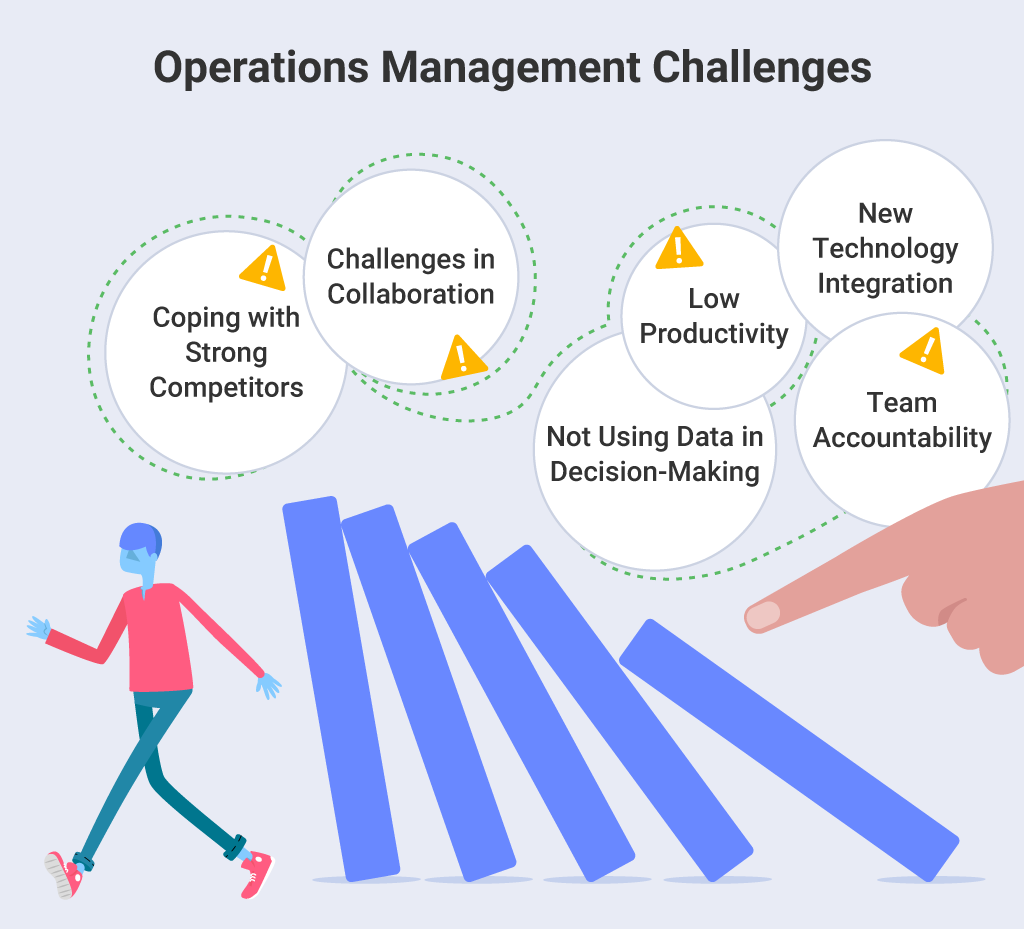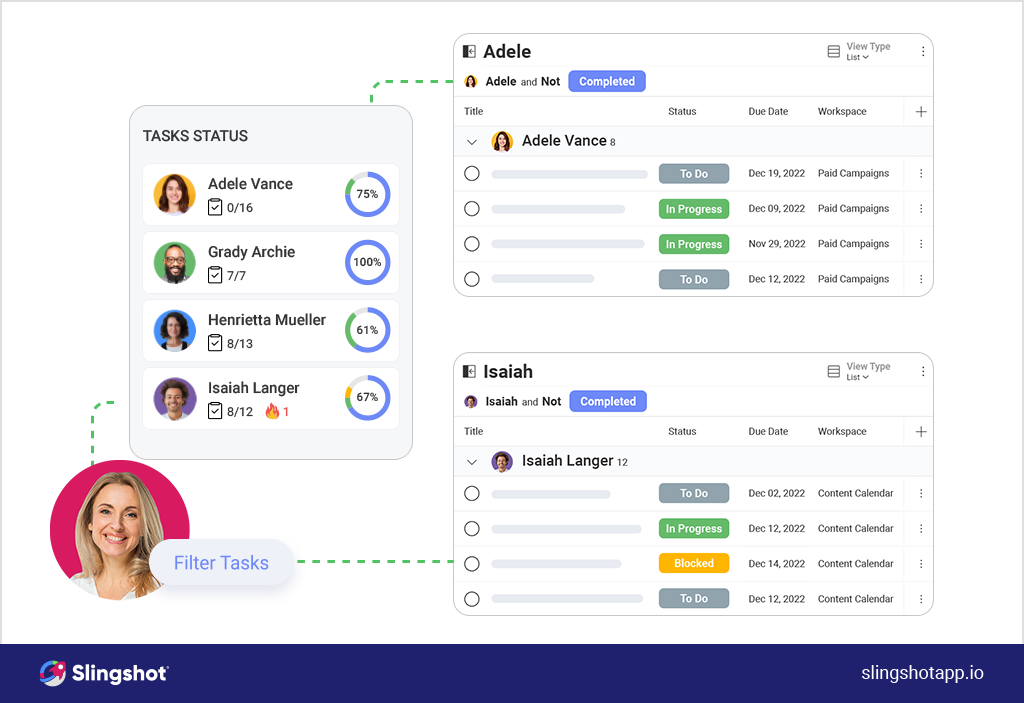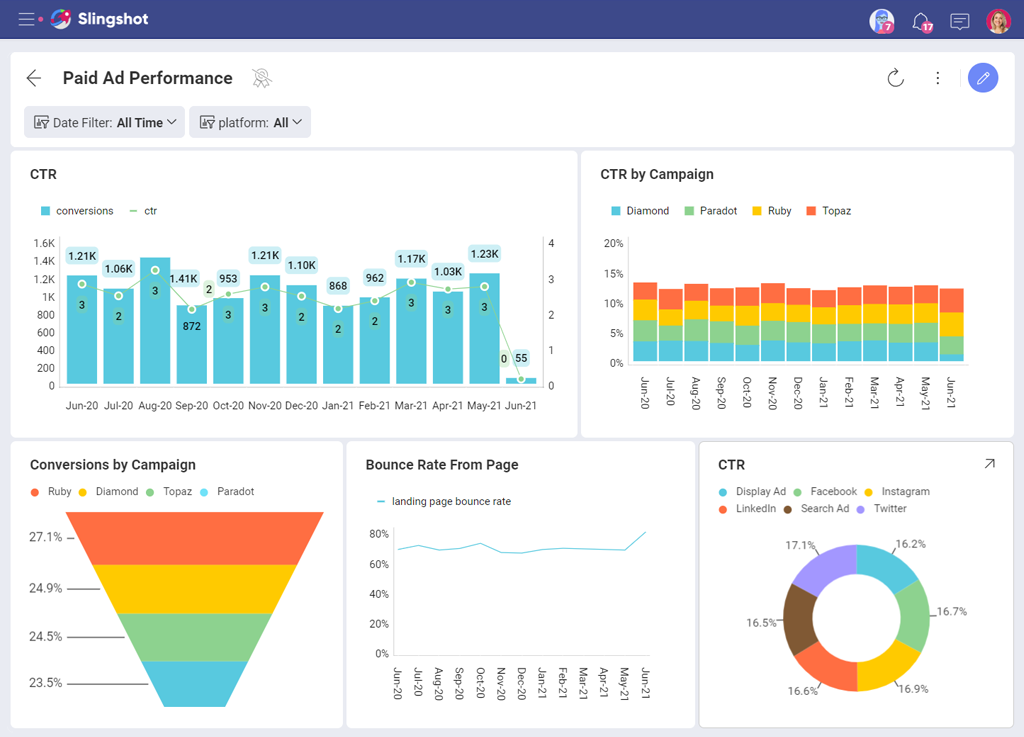
Top Operations Management Challenges and How to Solve Them
As every operations manager knows, a company must quickly deal with issues that threaten to make a business less profitable.
Executive Summary:
As every operations manager knows, a company must quickly deal with issues that threaten to make a business less profitable.
So let’s face it: the less time you spend in the weeds of issues, the more hours you can allocate to actually making your business healthier, helping your team thrive and aligning your goals faster to boost results.
In this article, we will talk about the strategy to avoid delays and mistakes and quickly progress by reducing chaos and streamlining all operations fast and efficiently.
Operations Management Top Challenges
In operations management, the goal is to always have your processes run smoothly, with no interruptions. That means streamlining your entire operational management process and reducing errors by organizing everything you need in one place.
So, let’s look at the most common operations management challenges in a way that improves processes and efficiency.
Coping with Strong Competitors
Every company deals with competition as they deliver products, retain customers and grow sales. So, it’s crucial to know your competition inside and out by analyzing and understanding their strategies. You can accomplish this by comparing your data to theirs to locate meaningful benchmarks where you might have an advantage, as well as looking for where you might be falling short. A competitor’s customer reviews are a valuable resource that can bring key insights into your strategy.
Challenges in Collaboration
Operations management involves effective coordination of many people and departments within an organization. The challenge here is to achieve effective collaboration without losing time searching for updates or information. The answer? Quick, accessible, and searchable communication between internal and external teammates. To run effective collaboration with your team and exercise better file management, it’s a good idea to keep all conversations, files, updates, data, projects, and tasks in one digital workplace.
Low Productivity
Many teams struggle with an overwhelming number of tasks, bad allocation of resources, and miscommunications which lead to burnout and bad results. To raise productivity and work smarter and faster (especially when your team is remote, or hybrid) you should have visibility in everyday tasks and keep up with what needs to be done without sifting through emails all the time. Greater accountability often reduces stress for teams.
Not Using Data in Decision-Making
The best decisions are based on the data. Period. Operations managers can always learn from data: the campaigns they run…the channels they use in their marketing… their sales strategy. Data is not just raw numbers; it’s about telling a compelling story. It’s a good idea to use a digital workplace that allows you to build dashboards with the data you have. These dashboards often help turn a table of numbers into insight – highlighting the things that matter most like customer satisfaction, engagement, and retention.

New Technology Integration
Integration of new and needed technology doesn’t need to be a tiresome and frustrating process for operations managers. Ensuring your team has all the features and functionality they needs provides your business with a competitive advantage, cost savings, and faster streamlining of processes. So, look for a way to bring all your processes into a tool that embraces and integrates all technology you need to run your business – cloud providers, data sources, chat and discussion options, task tracking, and project management options.
Team Accountability
In business operations and operations management, visibility, accountability, and transparency are vital to avoiding confusion, increasing productivity, reducing delays, and improving customer satisfaction. Look for ways to bring transparency into your team to keep everyone in the know on task progress, status, and ownership.

Overcoming the Top Challenges for an Operations Manager
f you’re currently dealing with any of the above-mentioned challenges, don’t worry – you’re certainly not the only one. Operations managers are responsible for the effective delivery of quality services, processes, and products. Few roles are more important for a company.
That said, operations managers can end up overwhelmed by issues that other managers rarely face. To really address issues before they cascade, take your game to the next level by following the following steps:
Foster Accountability at Every Turn
High-performing teams, have full visibility of everyone’s work. That means, having the ability to determine a project’s progress within a few clicks. It means being able to contact your team fast, no matter which department they are in. The key here is to make sure you don’t lose time in finding who’s doing what and when – that information should all be readily available – at the tip of your fingers. Not only does this keep you aware of deadlines but drives accountability through transparency.

Gather Market Data & Study Competitors
Stay on top of market trends. Keep up to date with what your customers’ want – and keep in mind, they change their minds often. Analyze what is working and align your teams around replicating those results, organization-wide. Study your competitors. Analyze their social media and use data analytics to see what they are offering and how they’re offering it. Use smart analytics tools to compare and contrast in order to improve your own operations.
Technology is Your Friend
Smart tools can help get your operations management under control – and empower your team to stay in tune. Trust a tool that unites your processes, and brings your teammates in constant collaboration. Connect and use all necessary digital features that bring forward better and faster results.
Make Data Your BEST Friend
In operations management, data is key. To everything. Make sure you rely on relevant data sources and filter every opportunity through the relevant data insights. Inform the next steps to your team by giving them the right perspective on doing their job and helping them follow the data that matters. Data lets you peek into the future and not act oblind intuition anymore.
Trust facts when they tell you why something in your strategy works and why it doesn’t. Data is easily processed today through tools that create beautiful visualizations and translate collected numbers into a picture that grants you knowledge, fast.

Solving Operations Management Challenges with Slingshot
Slingshot empowers more effective operations management by bringing all your processes and team collaboration into one place. Slingshot streamlines your work and creates the perfect environment for executing the perfect strategy.
Slingshot is the only digital workplace that brings together data analytics, project management, file organization, and team chat. Having everyone all-in-one place ensures an uninterrupted workflow for everyone in your organization. You can organize your teams, projects, and even departments into transparent and highly visible workspaces. Each workspace includes quick access to all related discussions, pinned files, data analytics, tasks, and information management. All of this, without needing to switch apps … ever again.
The biggest bonus? You can make better use of your data to drive better decisions. The data-driven features of Slingshot allow you to pull data reports from multiple sources and create beautiful dashboards that tell the full story of any campaign or project. Your team can easily track KPIs and go from insight to action in seconds, with dashboards that are created with a few clicks and shared with your team in seconds – or added to a data catalog, where all your organizational data is easily found, always.
You have challenges in operations management? Solve them now – with Slingshot.
Related Articles
Ready to grow your business 10x with AI decision-making?
Request a Free Demo of SlingshotSHARE THIS POST







